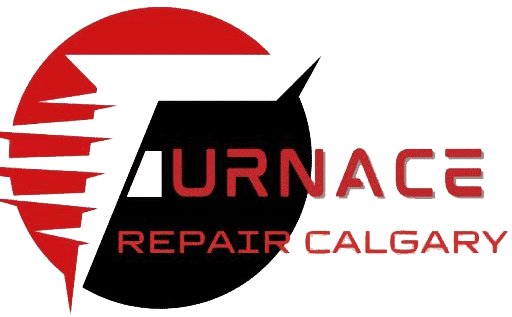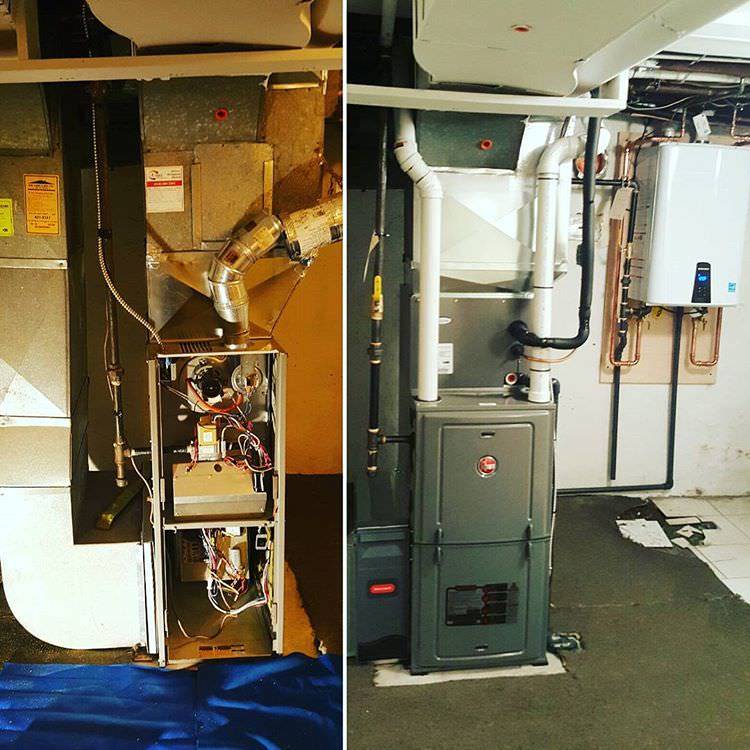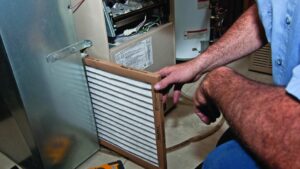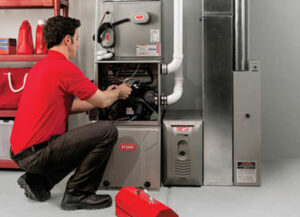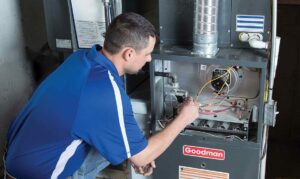Types of Furnaces
Your furnace powers your home heating system. This article describes the various categories of furnaces and outlines the different types of furnaces.
Related: How does a furnace humidifier work?
What are Furnaces?
One of the components of an HVAC system, a furnace, is a heating system that heats your home. There are several types of furnaces.
How Does a Furnace Work?
Since the natural gas forced air furnace is the most common in Calgary, here is how a gas furnace works.
- You set the thermostat to the home temperature that you desire.
- If the home temperature is below the thermostat setting, the thermostat signals your furnace to turn on.
- The furnace ignites the natural gas, and the blower motor distributes the warm air throughout your home through the ducts.
- When the home temperature reaches the thermostat setting, the furnace shuts down.
- This process continues to keep your home comfortable during the cold months.
Categories of Furnaces

Types of furnaces are categorized based on their mode of operation and the fuel they consume.
Their mode of operation
Based on the mode of operation, there are three types of furnaces:
- Single-stage furnace
- Two-stage furnace
- Variable stage furnace
The type of fuel they use
When we categorize the furnaces by their fuel types, we end up with three additional furnace types:
- Gas
- Oil
- Electricity
Types of Furnaces
Let’s look at how each furnace type operates and the fuel they consume.
The single-stage furnace
The single-stage is the most basic type of furnace. As its name suggests, this furnace only operates on a single mode, which could be “ON” or “OFF.” There are no extra adjustments with this type of furnace. Once you power it on, it will run at a constant speed until it turns off.
Since there are no adjustments, homeowners often end up with cold and hot spots.
Two-stage furnaces

Two-stage furnaces are capable of minimal adjustments: half-speed and full-speed.
At full speed, the furnace heats your home quickly and efficiently. When you require less heat, the heating system operates at half speed and is less loud.
Variable speed furnace
Now variable speed furnaces give you complete control of operating them. You can adjust the temperature to the level or degree you want it to be. The good thing with this is that it can keep your home at a relatively constant speed and deliver the heat more efficiently.
This type of furnace usually has some filter, and it can deliver more quality air around your house. Though you might pay a little more for this, it will help you save much on your utility bills.
Oil furnaces
In remote areas that do not have gas lines, many homes use oil furnaces. With an oil furnace, you require an oil tank to store the fuel. In addition, oil is more expensive than gas, and it is dirtier than gas. You will have to watch for build-ups of soot.
Oil furnaces can last longer if maintained well.
Gas furnaces
This one, as the name suggests, uses gas as its primary fuel. Nowadays, most homes in Alberta use gas furnaces. Alberta homeowners love that gas furnaces heat their homes quickly.
Instead of having to store fuel in a tank, you connect to a municipal gas pipeline. The gas furnace has a relatively complex operating system. However, it is very reliable in supplying heat through the heat ducts of your house. Additionally, it is quite an easy one to operate.
Electric furnaces
This one uses electricity purely to heat your home. They are usually very silent and efficient (reaching 100% AFUE in some cases). In addition, they are cheaper to purchase. However, electricity costs more.
Types of Furnaces – Final Word
There are six types of furnaces: single-stage, two-stage, variable stage, gas, oil, and electric. Each has its pros and cons—the right furnace for you depends on factors such as budget and location.
Another thing to keep in mind, each of the types we have can be very durable only if you maintain them properly. To avoid furnace problems, hire a local HVAC company to inspect your furnace at least once a year.
